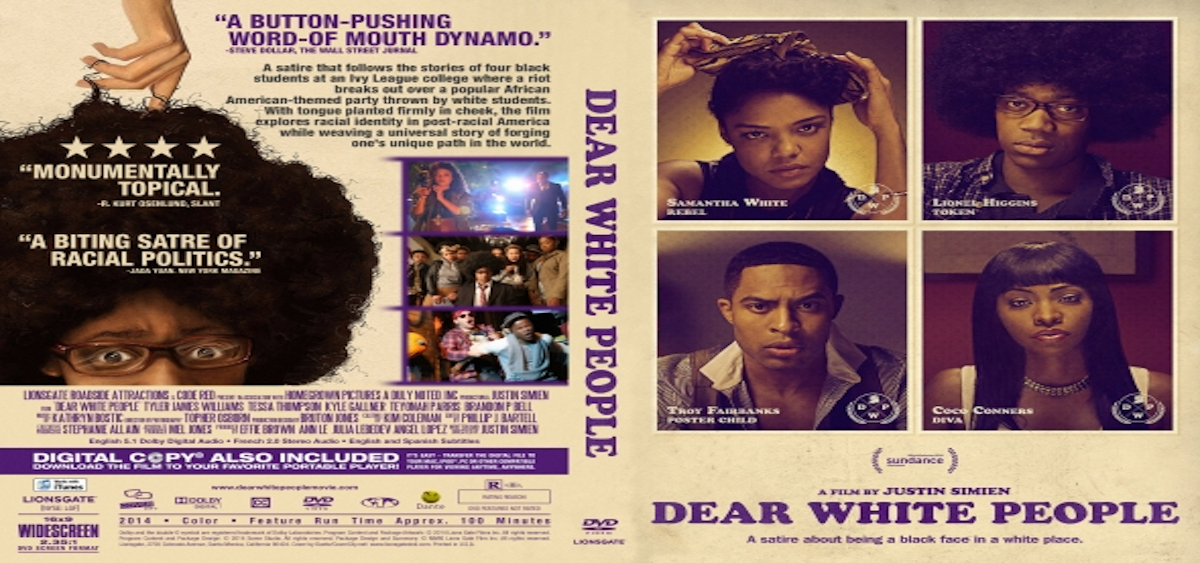Culture

“Dear White People” Premiere Sparking Race Conversation On Campus
By: Kaitor Kposowa
Posted on:
Two Ohio University organizations invited the campus community to the local premiere of Dear White People in hopes of creating a conversation about race on campus and in society.
Student Senate and the Black Student Cultural Programming Board (BSCPB) sponsored Athena Cinema’s 7:30 p.m. showing Friday, giving free tickets and popcorn to the first 100 people in line.
“Now that this movie is out, I feel like it’s going to be easier for us to reach out to members of the white community and other communities and have that dialogue about racism and what is appropriate and what’s not because we experience it a lot on campus and it might seem funny in the movie but they’re real issues,” said Kent Harris, BSCPB president.
The satirical drama-comedy follows four black students at a predominantly white Ivy League university as they deal with campus life and racial politics. Among the issues addressed are stereotyping, identity, media portrayals of race, interracial dating and homosexuality.
“It was very good and it was very truthful,” said Student Senate Black Affairs Commissioner Jasmine Riley.
She liked that the film not only addressed racism between races but the conflicts that occur within a race. She cited the example of one character wearing hair extensions and being embarassed about the particular tone of her skin as problematic behaviors she witnesses in real life.
“So, it’s not just coming from white people being racist upon black people but about black people hating themselves and internally being racist about their own culture,” she said. “I see a lot of people resenting being black because, in their opinion, it doesn’t get them where they want to be.”
Ohio University Senior John Brown VI felt a lot of the film’s success arose from so many types of people understanding the deeper meaning behind its humor.
“Everybody laughed,” he said. “I feel like this was the kind of humor that comes from one’s experience. So, while you’re laughing you’re also thinking of similar things that have happened to you.”
The film climaxes with a riot breaking out at a campus group’s African American-themed Halloween party. Many in attendance said this particular scene reminded them of some costumes they saw at the Athens Halloween Block Party last month.
“Just like the Halloween party in the film, it’s a time when people’s ugly prejudices have a tendency to come out,” said Ohio University senior Julia Miller.
She and others in attendance recalled seeing costumes of President Barack Obama and Mexicans, as well as the use of black and brown face, which they found offensive.
“I mean there’s the movement on campus to end the stereotypical costumes: the ‘We’re a culture, not a costume movement,’” she explained. “I think after Halloween, it has a lot of room to grow at Ohio University.”
While Miller enjoyed the movie, she expressed a concern about those in attendance.
“I don’t want to stereotype the audience at all but I think that the kind of person that is going to see this is aware that we are not in a post-racial society and is willing to admit we are not beyond color,” she said.
All 200 seats in the theater were filled, the majority of the audience being black. The theater’s cashiers said they even had to turn some individuals away.
Brown said while the racial makeup could have been more diverse, he was happy with the turnout. In spite of the movie’s title being addressed to one group, he said these conversations have to include everyone.
“Only black people talking about this is a problem,” he said. “Only white people talking about this is a problem. It has to be a community that has to have the discussion.”
Riley said the conversation Student Senate and BSCPB are trying to create is that race is still a problem. Their first task is to educate people through events like this movie premier.
“Then, we’re trying to help everybody come up with a solution to the problem and not just here at OU and in Athens, but one that can be taken everywhere,” she said.

